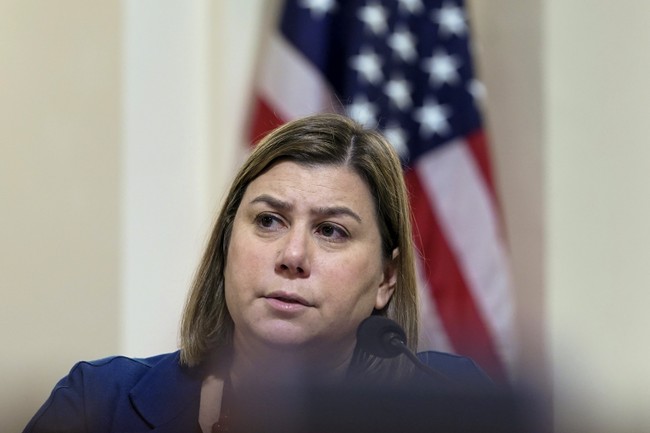ARTICLE AD BOX
BERLIN — They’re back.
Like clockwork, the European Parliament’s devotees come out of the woodwork in droves every five years, inveigling the rest of us to send people we’ve never heard of to a body whose raison d’être few citizens could explain without a heavy assist from Wikipedia.
“Vote in the European election!” read a homemade banner that pro-European activists hoisted above one of Berlin’s busiest thoroughfares last week. “The far right is on the rise. Democracy is at stake!”
No it isn’t.
In fact, European democracy might be better served by not voting and putting an end to the charade.
That this sounds like sacrilege testifies to the success of the Parliament’s lobby in pulling the wool over our eyes.
But the propaganda doesn’t change the fact that the European Parliament isn’t a parliament in any conventional sense of the word.
It may boast the trappings of a real parliament, with not just one but two chambers, in Strasbourg and Brussels, not to mention its countless committees and subcommittees, bloated staffs and labyrinthine bureaucracy. Europe’s Potemkin parliament has even had its share of graft and scandal, just like a real parliament.
Despite all that, the European Parliament doesn’t possess the one power that is the lifeblood of any real legislature: the power to legislate. Proposing laws is the sole privilege of the European Commission.
Its defenders might argue that the Parliament does have the power to offer amendments and revisions to laws in talks with the Council and the Commission. But the “trilogue” (it sounds like something on offer at a Belgian swingers’ club, but actually refers to the negotiating process between the Parliament and the Council with the Commission) is only a weak substitute for real legislative might.
The Parliament is ultimately the slave of the Commission, which itself is slave to the Council, i.e. the bloc’s member states. EU Parliament debates may be full of sound and fury, but in the end its deputies hew to their national consensus on the big issues.
When that consensus changes, such as on the European Green Deal package of climate measures, the Parliament follows suit. Consider the recent decision to phase out the internal combustion engine in 2035: After years of talks, the decision was endorsed last year by the Commission, the Parliament and the Council.
Now, however, Germany’s center-right CDU, which is likely to regain power next year, is campaigning against phasing out polluting cars, putting the future of the switch to electric in question. Under the slogan “Germany must remain the land of the automobile,” the CDU recently launched an (unscientific) online poll with one question: “Do you support the demand to reverse the ban of fuel-power cars?” (Strictly speaking, under an EU plan agreed last year, the internal combustion engine won’t be “banned;” instead, starting in 2035, car buyers will only be allowed to register new vehicles that are “carbon neutral.”)
 Germany’s center-right CDU is likely to regain power next year. | Ina Fassabender/Getty Images
Germany’s center-right CDU is likely to regain power next year. | Ina Fassabender/Getty ImagesIn the final analysis, what the EU Parliament wants won’t matter if Germany, Europe’s most powerful country, decides it no longer supports the move.
Such episodes explain why many voters, even if they don’t understand how the Parliament works, do grasp that they can safely ignore it. The sad thing is that they’re right.
Keeping up appearances
The Parliament’s main function is to create the appearance of a vibrant democracy in action.
Asked recently to describe the Parliament’s greatest achievements of the past term, Greens MEP Sergey Lagodinsky cited a decision to introduce a common charging cable, known as USB-C.
Electronics aside, its most important vote, which comes at the beginning of each term, is to choose a new Commission president and College of Commissioners. But here again, the Parliament doesn’t play the same role in nominating the executive that many other legislatures do. Rather, it serves as a forum akin to the Electoral College in the U.S.
Beyond that, the Parliament, which is dominated by the same parties that hold sway in national governments, functions essentially as a rubber stamp.
That’s not to say there isn’t plenty of political theater. With more than 700 deputies (the coming Parliament will have 720) representing over 200 parties across 27 countries, debate can be colorful, to be sure. Remember the Slovak MEP who released a dove into the chamber in April? Or the Bulgarian MEP who was accused of performing a Hitler salute in February 2022?
But the reality-TV aspect aside, it’s difficult to understand what purpose the institution serves. Not even Commission President Ursula von der Leyen seems to take the Parliament very seriously — how else to explain that she’s running for a second term as president during the EU election without actually running for a seat?
Von der Leyen knows that to win reelection as the Council’s presumptive nominee, she doesn’t need the support of a broad swathe of Europeans, just a majority of the Parliament. That’s why she focused her campaign on backroom meetings with national party leaders and the deputies whose support she needs.
 MEPs, earn some €120,000 per year, more than triple the average salary of EU citizens. | Frederick Florin/Getty Images
MEPs, earn some €120,000 per year, more than triple the average salary of EU citizens. | Frederick Florin/Getty ImagesIn one such meeting in Bulgaria last week, with center-right leader Boyko Borissov and members of his party, von der Leyen agreed to further scale back the Green Deal, according to two people who were present. The thing is, that package of environmental reforms was the centerpiece of her first-term agenda.
The fact she can reverse course without going directly to the voters or even engaging in a public debate about Europe’s course on climate policy illustrates what a farce the Parliament really is — and an expensive one at that.
Money for nothing
For an organization that serves no discernible democratic purpose, the Parliament ain’t cheap. Its deputies, or MEPs, earn some €120,000 per year, more than triple the average salary of EU citizens.
Another big outlay is Strasbourg, where MEPs convene for a few days each month to keep the French happy at a cost of more than €100 million per year.
That said, it’s certainly a boon for Strasbourg itself, which gets a regular influx of well-heeled MEPs that stay in its hotels and frequent its restaurants and bars.
It’s also been a gold mine for Lufthansa. The German airline operates a business-class air shuttle to Strasbourg from Frankfurt, where many MEPs connect, on the few days each month when the Parliament is in session there.
A seat on the 215-kilometer flight goes for €1,350. That might sound like a lot, especially compared to the €59 Lufthansa bus to Strasbourg from Frankfurt airport; but it’s only taxpayer money, after all. Besides, Europeans ought to properly compensate their MEPs for having to pretend they’re doing something useful.
Political barometer
Another feature of every EU election — in addition to dire warnings about the end of democracy — is the earnest, woe-is-me soul-searching over why Europeans never pay attention to what happens in the Parliament. “Because nothing ever happens” is not an answer Europhiles will countenance.
The real problem, according to conventional (elite) wisdom, is that national media rarely focus on what’s happening in Brussels (which is true). As a result, Europe’s elections are little more than a “barometer” indicating national moods in the 27 member states — a chance for voters to vent rather than cast a considered vote on the policy decisions facing the EU.
While this is true, it’s not because voters don’t think the EU is important or influential in their lives, but because they’re not stupid: While few understand the arcana of the Brussels bubble, most know the Parliament doesn’t really matter.
If it did, after all, they’d have been forced to pay attention long ago. But no Italian, Spaniard or German needs to be reminded of what is evident to all, that their national assemblies wield the real political power. How telling that the only TV show set in the Parliament is “Parlement,” a satire verging on farce.
Nor is this likely to end soon, given the need of Europe’s political establishment for a place to park people. I recently encountered a veteran Spanish MP who told me he hoped to win a seat in Brussels because it would be “less chaotic” than rough-and-tumble Madrid. Meanwhile, a Bulgarian candidate with no political experience but a thriving private business told me he was running because he wanted a soapbox from which to lobby for his industry. He confessed to having no real interest in EU politics.
Many established parties also use Brussels as a kind of bush-league, a place to try out new talent. That approach sometimes backfires: On the day she was nominated as the lead candidate for Austria’s Greens, Lena Schilling, a young climate activist, was asked by a reporter if Norway was a member of the EU. She had no idea.
Unless Europe bites the bullet and grants the Parliament meaningful legislative power (and reforms the election process with transnational lists of candidates instead of a potpourri of niche national parties), it will remain a backwater and something of a joke.
This weekend will mark the only time in the coming five years that many national media outlets in Europe devote real attention to the affairs of the European Parliament. Even then, it may only be to warn that the rise of far-right parties could jeopardize the institution’s future.
While meant to sound like a threat, that would actually be a reprieve.
.png)
 8 months ago
5
8 months ago
5








 English (US)
English (US)